For a while now, we’ve been mentioning the difference between short-term happiness and long-term happiness.
But what do these terms mean? What constitutes short-term happiness and how does it differ from long-term happiness. Even then, how can these concepts help you lead a happier life?
This article aims to answer all your questions, using examples and illustrations. In a few minutes, you’ll know how you can use these concepts to steer your life in the best direction possible.
(after reading this article, you’ll also understand what this image here is about. I promise!)
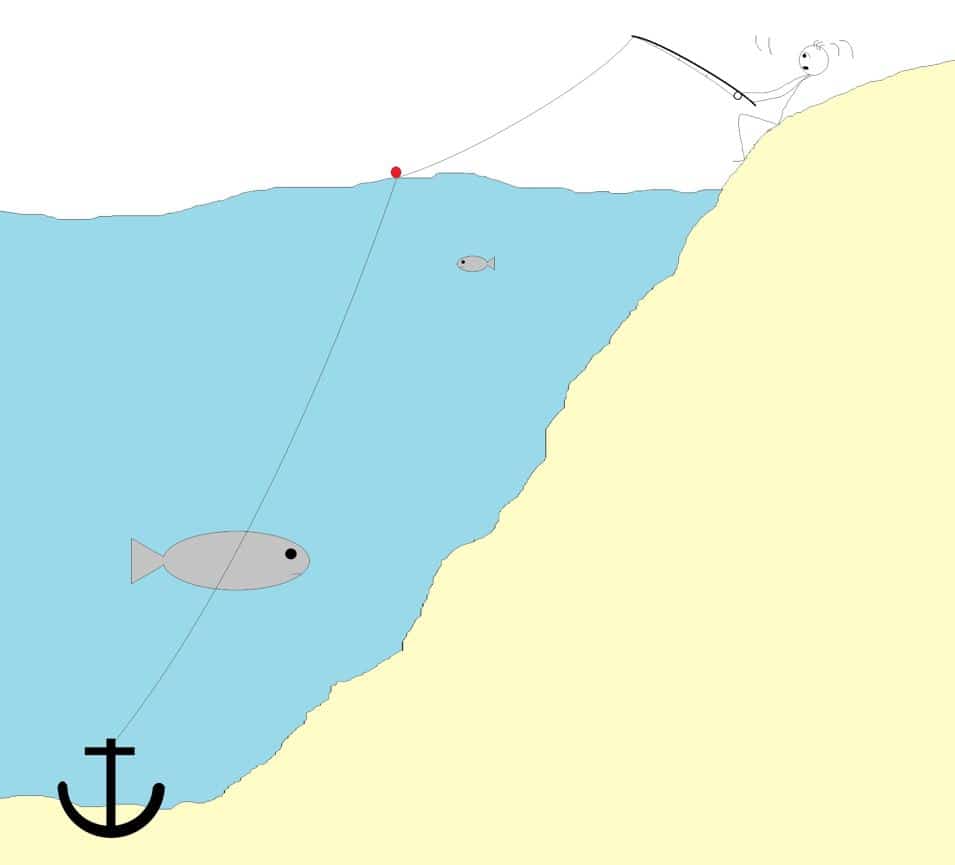
Contents
What is happiness?
First, let’s talk briefly about what happiness is.
According to Google, the definition of happiness is “the state of being happy”. This is arguably one of the most useless answers Google has ever given me. But when you think about it for a minute, you’ll quickly learn that it is very difficult to define happiness.
That’s because happiness for me is not equal to happiness for you. If you ask me what made me happy this past week, I’ll say:
- Taking my new photo camera for a test in the beautiful weather outside, together with my girlfriend.
- Finally finishing a 10K run again, after a long time.
- Re-watching Game of Thrones with my girlfriend, especially the episode in which Joffrey chokes on his wine. 😉
- Writing this article and creating silly stick figure drawings for it (you’ll see later).
This is what happiness currently means to me, but would this list of activities make you similarly happy? Most likely not!
That’s because your definition of happiness is as unique as you are.
Short term happiness
Let’s first discuss the concept of short-term happiness. What is it, what are some examples of short-term happiness and how often can you recognize this concept in your daily lives?
What is short term happiness?
You might have a vague idea already, but here is what short term happiness means:
Short-term happiness is a quick and easy moment of happiness. It’s normally relatively easy to obtain, yet its effect quickly diminishes.
The easiest example of short-term happiness is getting to eat a piece of your favorite pie.

Everybody loves pie, right? That first bite is usually extremely tasty, and speaking from personal experience, that first taste usually puts a smile on my face. That smile is genuine, yet likely won’t be something I’ll remember at the end of the day.
It’s not that the pie didn’t make me happy, it’s just that it was relatively quick and easy, and after I finished my piece, my happiness slowly reset back to my daily default.
Let’s explain it more with some examples.
What are examples of short term happiness?
Here are some examples of typical short term happiness:
- Sharing a funny joke with your colleagues.
- Going to a concert of a band you like.
- Watching your favorite show on Netflix.
- Eating a piece of pie.
- Receiving gifts for your birthday.
- Etc.
What these things all have in common is that they are quite simple in nature. However, if you repeat any of these things 10 times in a row, the happiness you gain from these activities will quickly diminish. Eat one piece of pie and you’ll love it. Eat an entire pie on your own in one sitting and you’ll be nauseous and ashamed of yourself.
As I was creating the structure of this article, I thought of a funny and accurate analogy of this short-term vs long-term happiness concept.
Imagine that you’re trapped on an island after a terrible plane crash, with no food and no sign of help. All you have left from the crash is a fishing rod. Without any food on the island, you decide to test your luck and try fishing for a while.
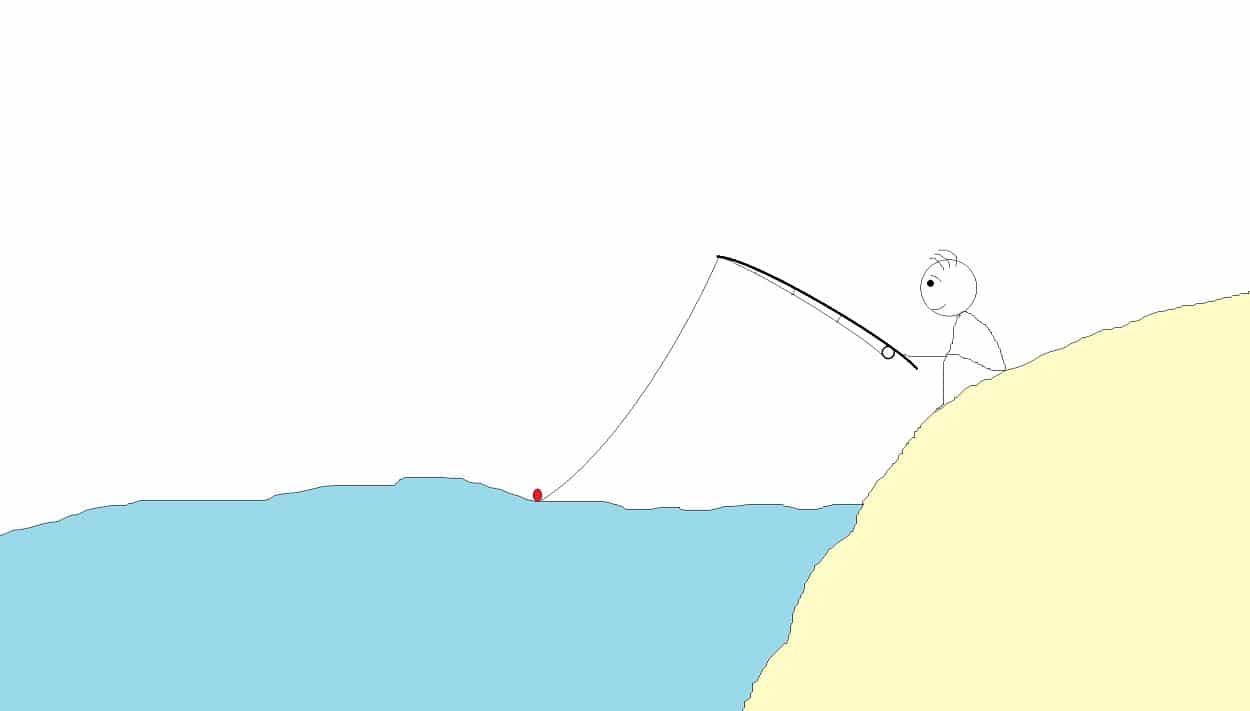
At first, you just want to catch any fish you can. Even the smallest of fish, you’ll be happy to catch anything at all just because you’re starving already.
Suddenly, you spot a fish right underneath the surface, close to the shore!
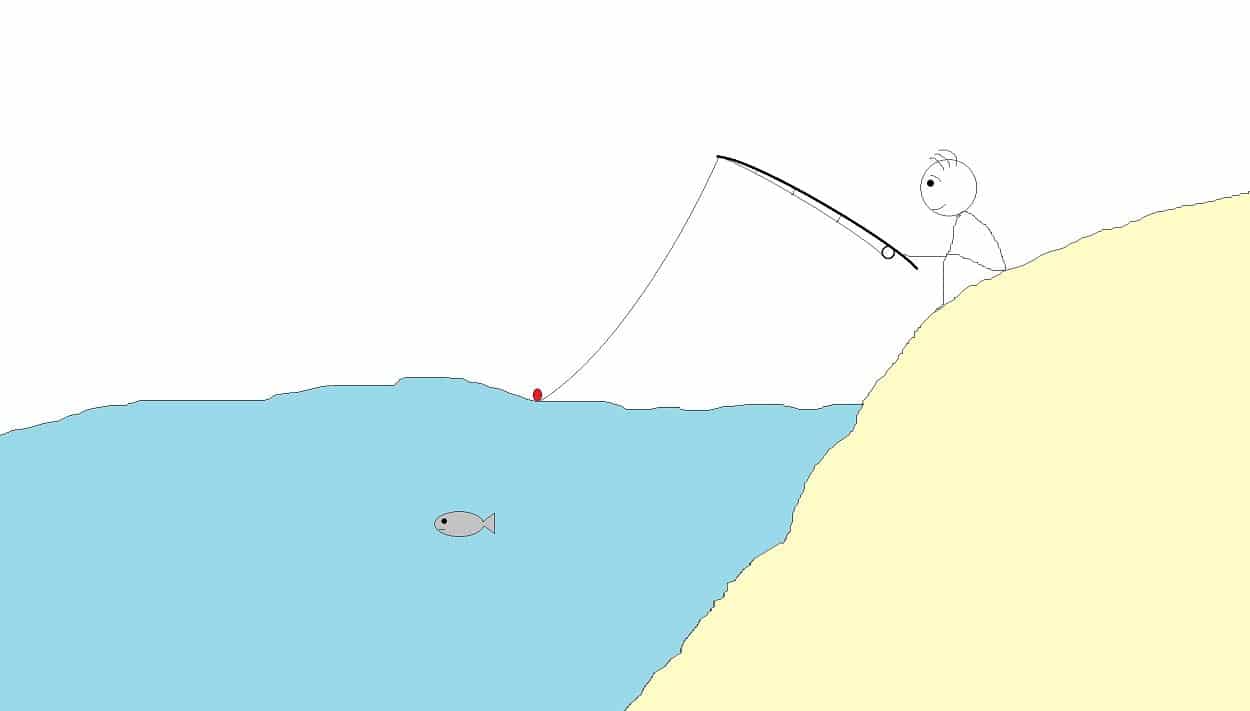
Even though you’ve never caught a fish in your life, it doesn’t take long before it bites, and KAPOW: you just caught your first fish!
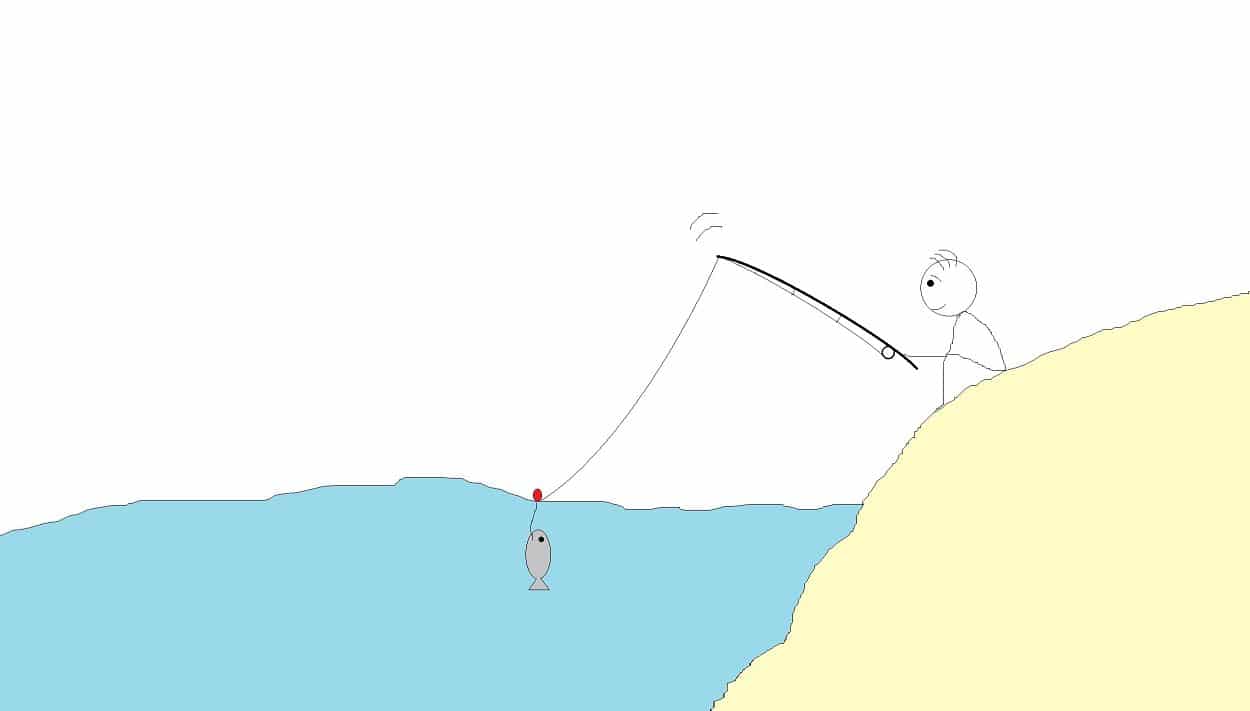
Even though the fish contains little meat, you’re happy and try to enjoy it as much as you can!
Long term happiness
Let’s continue this stuck-on-an-island-with-a-fishing-rod analogy, and discuss the concept of long-term happiness.
Yesterday was a fantastic day. You caught your first fish, had a fantastic feast – albeit a bit small – and had a good night of sleep.
Now, it’s day 2 on your deserted island and you wake up with a growling stomach. You’re hungry again!
You can try to catch another small fish, but it doesn’t sound as good as it did yesterday, because:
- You now know these small fish don’t solve your hunger issues.
- You want something else.
- Catching small fish won’t get you off your deserted island.
- You don’t feel like catching small fish for the rest of your lonely life.
As you consider your options, you see something big moving underneath the water, further offshore.

It’s a much bigger fish!
If you manage to catch this one, you’ll have enough food for days – maybe even weeks – and you won’t have to worry about food anymore. This means you can spend your time focusing on other important stuff, like getting rescued from your island.
Of course, you try to catch this fish!
However, you spend 3 days trying to catch it. It’s a bigger fish, it swims much deeper and further offshore, so it’s incredibly difficult to catch it. Hell, you’re not even sure if you’re doing it properly at all. Will you ever catch this fish?
Then finally, bingo!
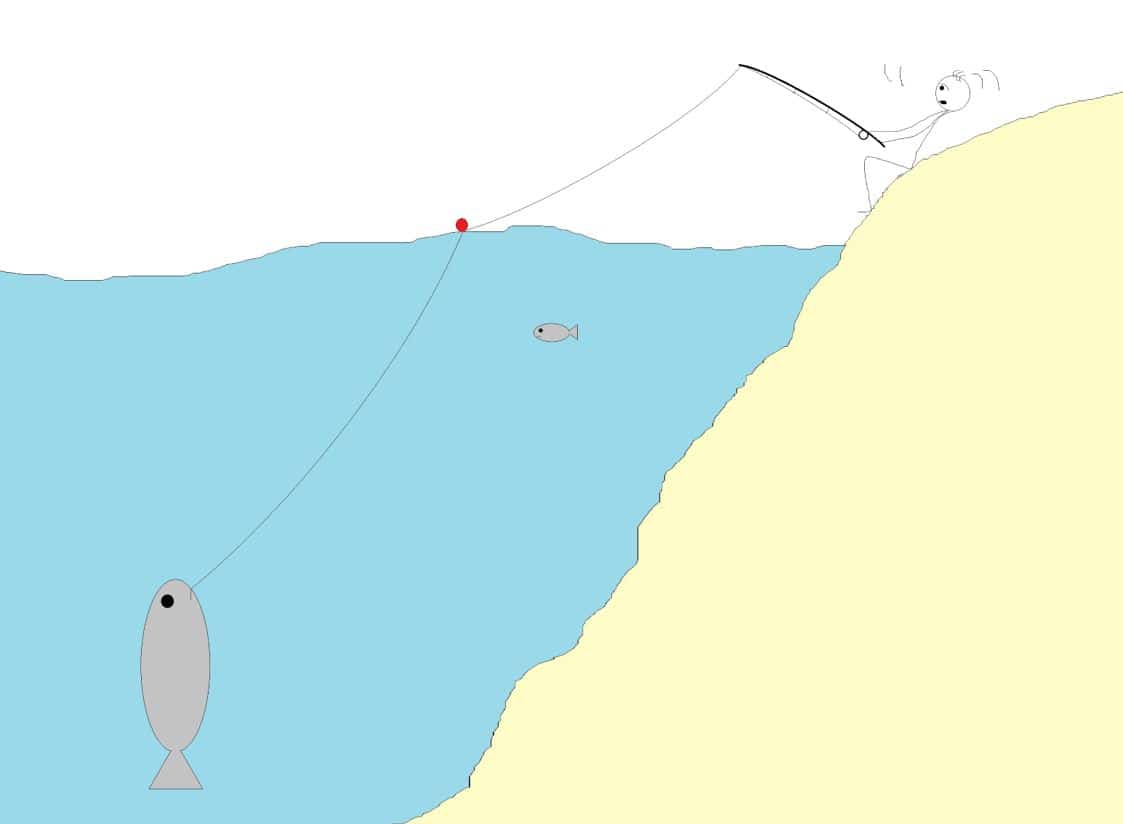
You’ve caught it, or at least, that’s what you think. Unlike those small fish, this one struggles and fights back! It takes a lot of energy to pull this fish ashore, and by the end of it, you wonder if it was all worth it.
But as you cook a piece of this delicious fish, you’re glad that you decided to stick to your plan. As you have another bite, you fantasize about the beautiful “help” sign you’ll build, now that you finally don’t have to worry about food. Maybe you can start creating an actual rescue plan?
In this wicked analogy that I just thought of, this enormous fish is the concept of long-term happiness.
What is long term happiness?
Long-term happiness cannot be achieved at the flip of a button. It takes planning and a concise string of actions to get you to long-term happiness. One of the best indicators of long-term happiness is to live life with a purpose. Living a purposeful life is not something that you can do overnight. It is not defined by a single action, as is the case for all long-term happiness.
What are examples of long term happiness?
In addition to living your life with a clear purpose, some other examples of long term happiness are:
- Being married to the love of your life.
- Being proud of the work you do.
- Taking joy from the successes of your children.
- Feeling proud after overcoming a difficult physical challenge, like finishing a marathon, or lifting a record weight.
- Reaching a personal milestone, like delivering an important project or reaching your goal weight.
- Etc.
Short term vs long term happiness
Now that you are aware of these two different kinds of happiness, I want you to picture some scenarios.
- Picture a life in which you spent your youth partying, doing whatever you want to do, using drugs and living life like every day could be your last. Sure, you feel pretty happy when doing these things, but you can probably see how this lifestyle will eventually catch up with you, right?
You might have guessed it, but this scenario is focused exclusively on short-term happiness. And the simple fact is that pursuing nothing but short-term happiness does not lead to a sustainable happy life.
Now picture the following scenario:
- You’re in your early twenties and want to become the next Jeff Bezos or Elon Musk. You have great ambitions and are incredibly disciplined and inspired to become everything that you think you can become. You spend an incredible amount of time working on your projects, and you even make sacrifices just for the sake of your goals. You don’t have time for sleep, social activities or relationships. Hell, even your health starts to decline. It doesn’t matter though, because you eventually want to reach your goals, and then you’ll be happy right?
This is another extreme example of happiness. You can probably see how this person is very likely unhappy.
He is spending the best years of his life making sacrifices in anticipation of what he eventually wants to become. For a lot of people, this sounds like a logical decision. But to me, this sounds like a huge mistake. You might feel satisfied with the progress you’re making, but are you truly happy? If you get in a fatal car crash tomorrow, would you have any regrets?
Find your balance in long and short term happiness
This is why it’s so important to find a good balance between short-term and long-term happiness.
On the one hand, we all want to:
- Have athletic bodies.
- Graduate with the best grades.
- Save up enough money for a rainy day.
- Do our best at our jobs.
- Deliver the best products.
- Etc.
But on the other hand, we also want to:
- Sleep in every now and then.
- Enjoy a piece of pie every now and then.
- Take our significant other on a surprise date every now and then.
- Take a day off every now and then.
- Etc.
It must be clear to you now that your optimal happiness lies somewhere in the middle of short-term and long-term happiness. Focus exclusively on one, and you’ll lose.
Study on short term vs long term happiness
The concept of short-term vs long-term happiness shares a lot of overlap with delayed gratification. Delayed gratification means resisting immediate rewards for a bigger reward later. It turns out, humans are usually pretty bad at this.
A famous example of this is the Stanford marshmallow experiment, in which children were offered the choice between one marshmallow right now, or two marshmallows at a later time. A lot of children rather pick an immediate reward, even though it is smaller and less of a reward.
Even though we are naturally bad at it, delaying gratification – or opting for long-term happiness instead of short-term happiness – is very important. As long as there is a balance between the two. Interestingly, another study shows that people who are more aware of their future selves are more inclined to make better long-term decisions.
Why you need to live a purposeful life
As I mentioned before, living a life with purpose is one of the strongest predictors of long-term happiness. If you feel like you’re working towards something that you are extremely passionate about, you’ll find that you are much happier by default.
If you don’t feel like you’re living your life with purpose, I hope you can find inspiration here on the Happy Blog. I’ve written a lot of articles already on how to live a purposeful life, and how others have found their own purpose.
Why is this so important?
Because you can spend a big part of your life under the assumption that you are chasing long-term happiness, while unaware of what’s really happening.
I often see this with young adults, who are facing the difficult decision to pick a career path while still in school.
We’re supposed to pick the direction of our career before we’re even 20 years old, which often results in bad decisions. Unfortunately, a lot of people only find out about this when they’ve already started their careers, sometimes with thousands of dollars in student loans. If you’re in this situation, this article on the Wait But Why site inspired me a lot, as it might do for you.
The point that I’m trying to make here is that finding your “why” in life is really important, and something that must be on your mind if you want to find sustainable happiness.
Or else, you might end up like the last sketch of my stranded-human-on-a-deserted-island analogy:
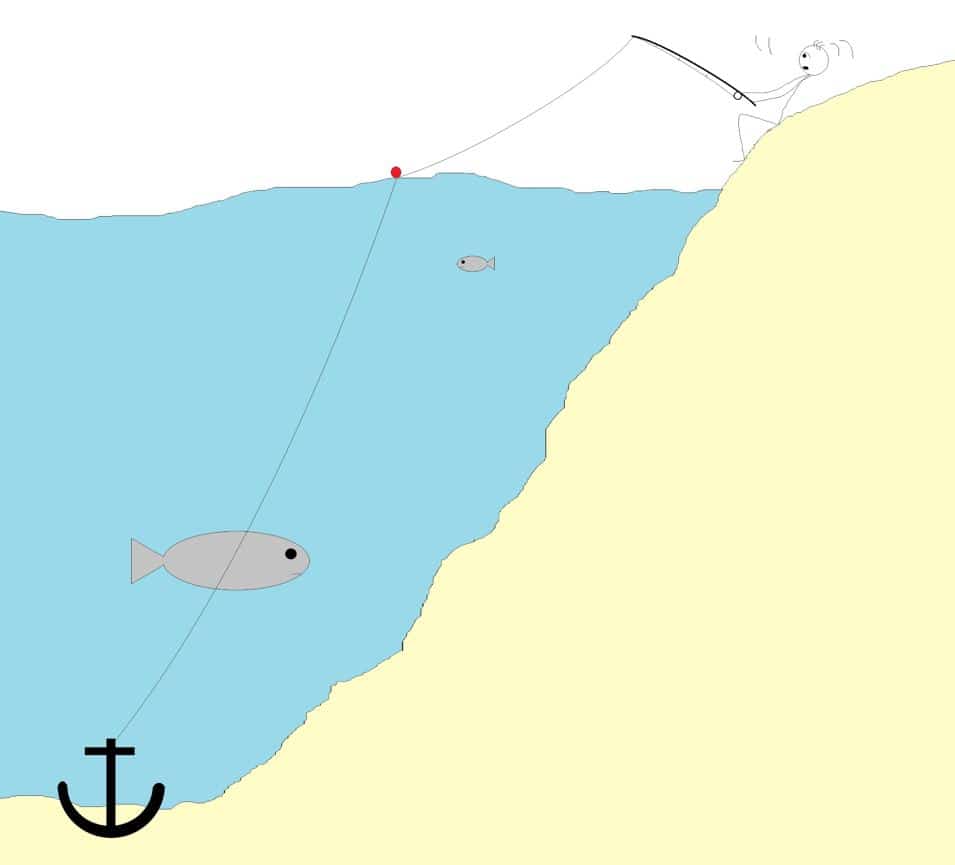
This guy has spent days thinking he’s about to catch the biggest fish in the ocean. Little does he know that he only caught a rusty anchor that has absolutely no value to him.
Don’t be like this guy.
What you should remember about short term and long term happiness
The concepts of short-term and long-term happiness are not an exact science. If it was, I wouldn’t have to draw these silly stick figure paintings to prove a point.
But that doesn’t make these concepts less powerful.
The true power of short-term vs long-term happiness lies in recognizing the way that they are balanced in your life. Especially when you’re feeling unhappy.
If you’re unhappy at the moment, please consider what you are missing. Are you missing short-term happiness?
- Are you longing for a cold beer at the end of a workday?
- Do you want to just crawl up in bed and binge-watch The Office?
- Do you want to smash your alarm clock with a hammer and sleep in till noon?
Or are you feeling unhappy due to lacking long-term happiness?
- You’re in a dead-end job that makes you less motivated each day?
- You’re in financial trouble and worry about paying your rent every week?
- Or do you feel lonely and want a friend that you can trust?
If there’s one thing I hope you learned from this article, it’s that you need to take different actions based on what causes you unhappiness.
If you’re worried about paying your rent at the end of the week, then binge-watching Netflix the entire weekend might allow you to forget about your problems for a while, but it won’t solve them.
If you’re aware of your situation, you’ll be able to steer your life in a better direction by making informed decisions about your happiness. That’s the true power of knowing about short-term and long-term happiness.
I sincerely hope this article has shed some light on the topic.
Closing words
This was one of the most fun articles I’ve written so far on Tracking Happiness! Now, I want to hear from you. Did you hate it? Did I leave some crucial topics? Do you want to share your own experiences? Or do you want to hire me for my painting skills? I’d love to hear about it in the comments below!

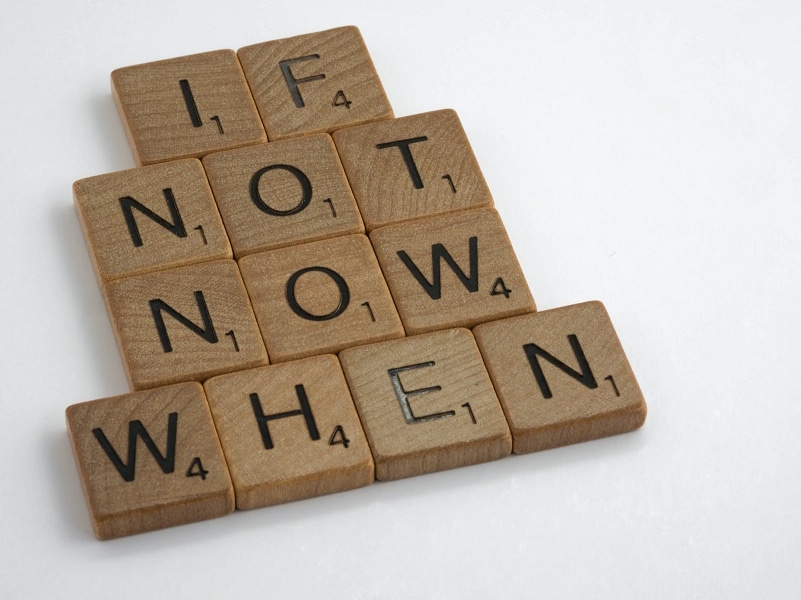
This was a fantastic article as I had been thinking about the same recently. Your metaphors and plain language (along with that GoT reference 😋) was really comprehensive. This is the first time I am leaving a comment on any article. The difference between short term and long term happiness indeed determines one’s life and one should be aware of it and maintain a balance.
Happy to hear that you enjoyed this article! Thanks for sharing, Ekagra! 🙂
It was really good article… It May change my life actually. Hope you do more.thanks Hugo
Thanks for the kind words!
This really good article
It cleared some of my doubts
Thank you 😊😊💖
Thanks for sharing, I’m happy you found our work to be valuable!
Wow….i finally came to know the difference…i always remained befalled in btw these two .in my real life….thanks…
Thanks Hugo for the useful post.
Glad you liked it, Hieu!
the simplicity makes it more beautiful
Thanks, I really stretched my Paint skills on this one!
I hope that you are happy there in the Netherlands :))
Absolutely! 😊
Totally loved the simplicity in expressing these simple yet misunderstood concepts. Loved the stick drawings and the analogy. Super effective indeed! Thank you.
Thanks for the kind words Amritaa. Your positive words give me confidence in my stick-figure-drawing capabilities! 🙂
This was a great article! Thank you for writing it. – Micky Star